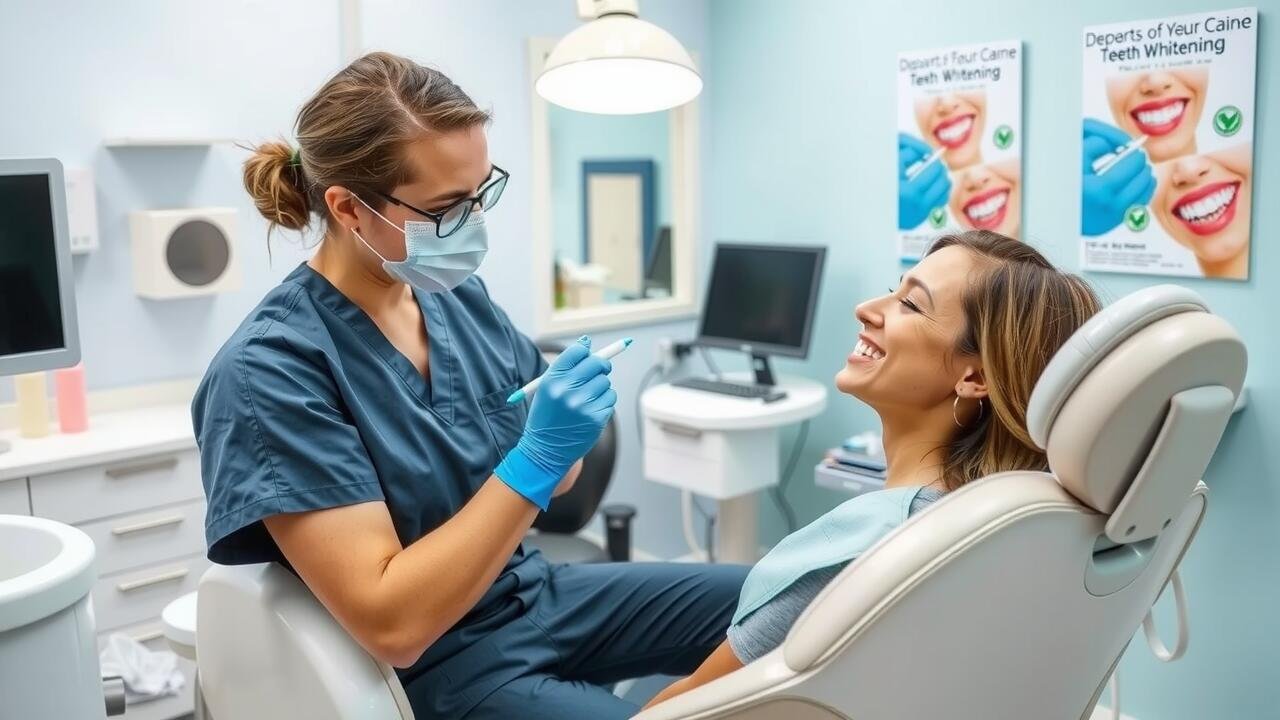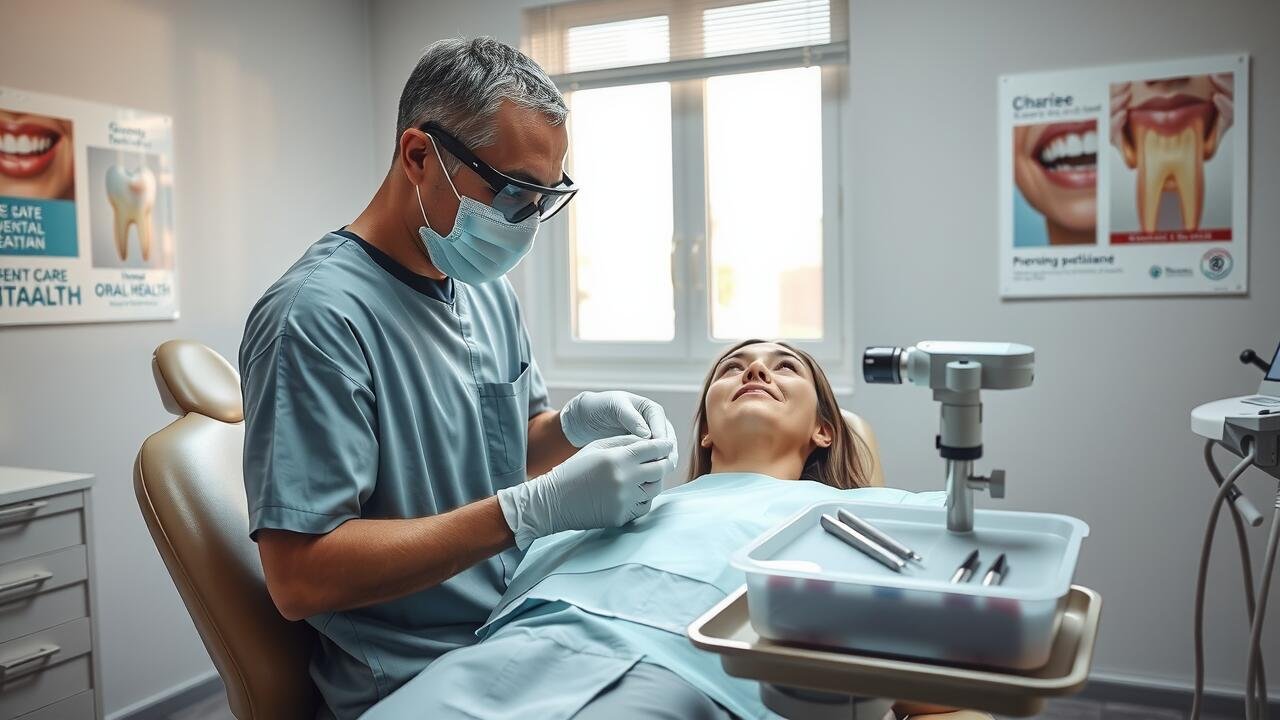
Maintaining Whiter Teeth After Treatment
After achieving your desired shade through teeth whitening treatments, it’s crucial to maintain that brightness for as long as possible. Regular dental check-ups play a vital role in this process. Professional cleanings help remove surface stains and plaque buildup, ensuring your smile stays radiant. Additionally, consider using whitening toothpaste to gently enhance brightness while you brush daily.
Diet choices significantly affect the longevity of your whitening results. Avoiding foods and beverages that can stain your teeth, like coffee, red wine, and dark berries, helps preserve whiteness. Incorporating crisp fruits and vegetables can also promote oral health and aid in cleaning teeth naturally. For those seeking specialized care, Teeth Whitening Johns Creek, Georgia, offers various services tailored to maintaining a brighter smile.
Best Practices for Long-lasting Results
To maintain the brightness of your newly whitened teeth, adopting a consistent dental care routine is essential. Regular brushing and flossing help eliminate surface stains and prevent plaque buildup. Using a whitening toothpaste can also enhance the effects of your treatment. Those living in or around the area can benefit from local resources like Teeth Whitening Sandy Springs, Georgia, where professionals can provide tailored advice and products to prolong results.
Limiting the intake of staining foods and beverages is another effective strategy for preserving your smile. Coffee, red wine, and certain berries can contribute to discoloration over time. Rinsing your mouth with water after consuming these items can minimize their impact. Additionally, regular dental check-ups will help identify any new stains early and allow for timely intervention. Emphasizing these best practices can significantly extend the life of your whitening treatment.
The Role of Oral Hygiene in Whitening
Oral hygiene plays a crucial role in maintaining the whiteness of your teeth. Regular brushing and flossing help remove surface stains and prevent plaque buildup, which can dull your smile over time. Incorporating a whitening toothpaste can enhance this effect, as these products often contain mild abrasives that polish teeth while also fighting against staining. Residents seeking dental care might consider professional options available in locations like Teeth Whitening Johns Creek, Georgia, where specialists can provide personalized advice.
Visiting a dentist for routine cleanings is another essential aspect of good oral hygiene that supports teeth whitening efforts. Professional cleanings can eliminate stubborn stains that regular brushing may miss. Dentists also offer insights into proper techniques for at-home care and can recommend products tailored to individual needs. By maintaining oral health through these practices, individuals are more likely to enjoy lasting results from whitening treatments.
Recommended Daily Care Routines
Establishing a daily care routine is essential for maintaining the brightness achieved through any whitening treatment. Regular brushing with a fluoride toothpaste helps remove surface stains while protecting the enamel. Choosing a soft-bristled toothbrush can prevent gum irritation and provide a gentle clean. Incorporating mouthwash with whitening properties may also enhance your results, ensuring that you combat bad breath while tackling discoloration.
Flossing daily is another crucial element for a comprehensive routine. It removes plaque and food particles from between teeth, areas that a toothbrush may miss. Additionally, limiting the consumption of staining foods and beverages, such as coffee and red wine, can make a significant difference in the longevity of your results. For those seeking professional solutions, searching for “Teeth Whitening Roswell, Georgia” can provide local options that complement your at-home care.
Comparing Whitening Options
When exploring teeth whitening options, consumers encounter a range of methods, each with its advantages and drawbacks. At-home kits offer convenience and cost-effectiveness, while professional treatments provide faster and often more dramatic results. For those considering Teeth Whitening Georgia, in-office procedures could prove beneficial, featuring stronger bleaching agents applied by dental professionals. The choice often hinges on budget, time constraints, and individual sensitivity to whitening products.
Natural remedies have gained popularity as a more affordable alternative, with ingredients like baking soda and activated charcoal touted for their whitening effects. Though these methods may have some merit, they often lack the efficacy of commercial products. Additionally, consistency in application plays a vital role in achieving desired results, regardless of the selected approach. Understanding these options enables consumers to make informed decisions tailored to their specific needs.
Pros and Cons of Various Methods
Several teeth whitening options are available, each with its advantages and disadvantages. In-office treatments often yield quick results and are administered by dental professionals, ensuring safety and effectiveness. However, these sessions can be expensive, making them less accessible for budget-conscious individuals. Over-the-counter teeth whitening kits, including strips and gels, provide a more affordable alternative. While they may be convenient, results can vary widely, and some users may experience sensitivity or irritation.
Teeth Whitening Alpharetta, Georgia, offers various choices tailored to individual needs. Natural methods, such as baking soda or activated charcoal, attract those looking for non-chemical solutions. These options can be cost-effective but often lack the immediate results of more advanced treatments. Additionally, diet changes can also impact whiteness, but the results are gradual. Balancing efficacy, safety, and cost is essential when choosing the right teeth whitening method.
FAQS
What is the cheapest method to whiten teeth at home?
The cheapest method to whiten teeth at home typically involves using baking soda mixed with water or hydrogen peroxide, as these ingredients are inexpensive and can effectively remove surface stains.
How often can I whiten my teeth using at-home methods?
It’s generally safe to use at-home whitening methods, such as baking soda or whitening strips, a few times a week. However, it’s essential to monitor your teeth and gums for sensitivity and to consult your dentist if you have concerns.
Are there any natural remedies for whitening teeth?
Yes, some natural remedies include using baking soda, activated charcoal, or apple cider vinegar. While these may help to some extent, their effectiveness varies, and they should be used cautiously to avoid damage to enamel.
Do over-the-counter whitening strips work?
Yes, over-the-counter whitening strips can be effective for many people, providing noticeable results at a lower cost compared to professional treatments. However, results can vary based on the product and individual tooth type.
Is it safe to whiten teeth cheaply and frequently?
While inexpensive methods can be effective, excessive whitening can lead to tooth sensitivity and enamel damage. It’s important to follow instructions, limit the frequency of use, and maintain a good oral hygiene routine.


